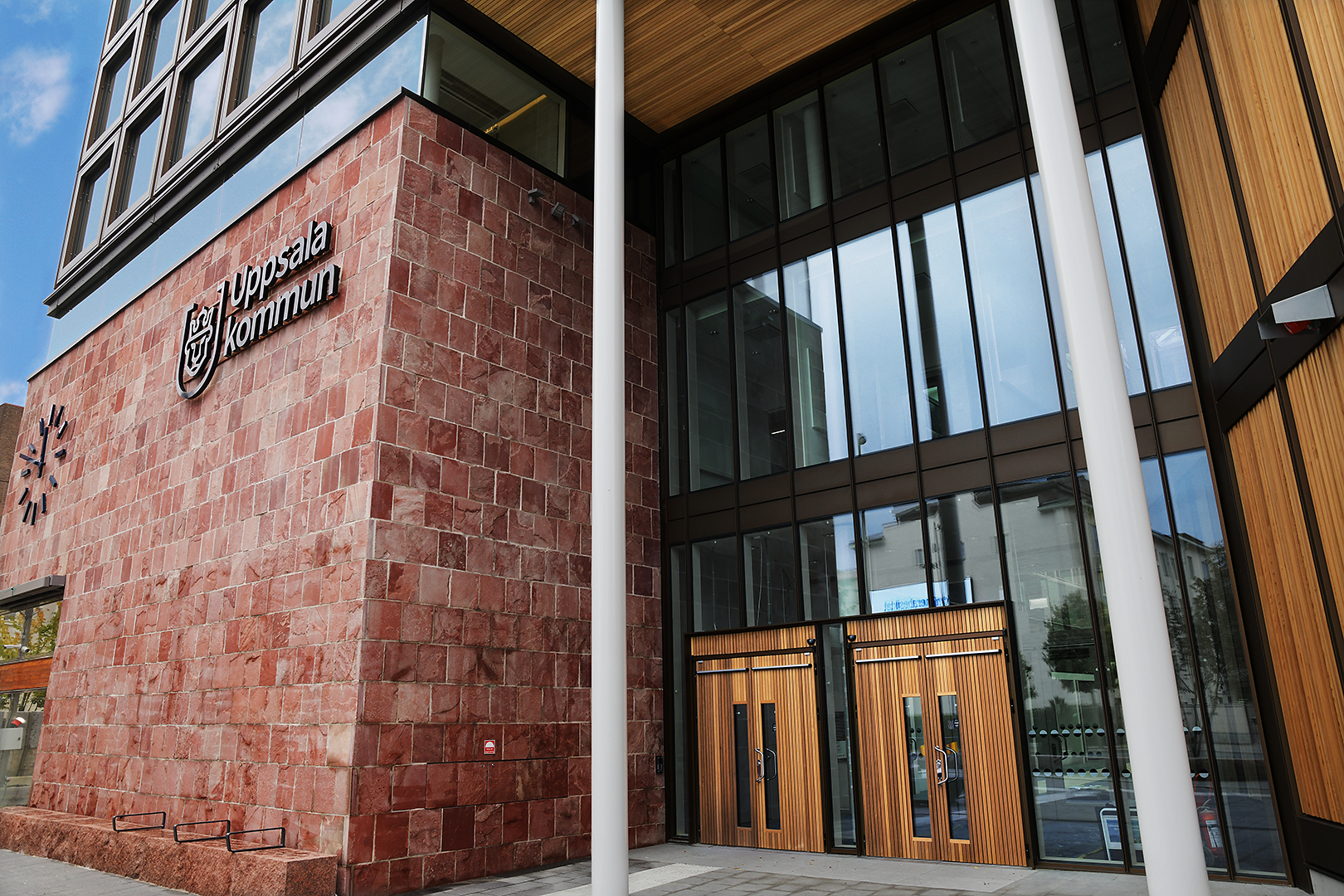
Integrated food planning

Andrew Gallagher
PhD Student at the Department of People and Society, SLU
Story from the future – ‘Making the most of local leftovers’
“A low murmur of voices fills the amphitheatre in Uppsala city hall, as representatives from across the region gather to discuss this month’s agenda regarding the regional food system. There are farmers, shop owners, politicians, hobby gardeners, local residents, researchers, doctors, lorry drivers, school teachers, kitchen staff, lawyers and many more people from a range of occupations sitting in the chairs around the room.
The theme of today’s discussion at the 20th sitting of the Food Policy Council is ‘making the most of local leftovers’, where farmers from the region will work with delegates to distribute excess produce from surrounding farms to local restaurants, public services and charity organisations. The session will co-produce ideas to make the most of local ingredients to reduce waste, make healthy and sustainable meals, feed those most in need, and support local businesses and local communities in the region. The ideas receiving the most votes will be taken to the municipality, where representatives at the ‘integrated food policy unit’ will check necessary regulations, policies and guidelines and work with relevant departments to implement actions to achieve the goals set out in the proposal.”
Back to 2024 – The emergence of food strategies and food policy initiatives
Food has historically been absent from the planning field, and has not been given the same level of priority as other planning areas such as housing, health and water resources. However, in recent years, as greater concerns for sustainability and health, coupled with rising food prices and disruptions to global supply chains, food issues are garnering more attention. This is especially the case at the local level, where municipalities have a direct impact on the local food system through policy levers connected to school meals, procurement for public services, waste management and food safety to name a few.
The project, integrated food planning, looks at how municipalities incorporate food issues into different forms of planning and policy-making, and how food is prioritised alongside other societal functions. In particular, the spatiality of food – how food practices and processes are distributed across space and how they in tandem shape the urban environment – provides an interesting lens to look at how planners use spatial planning in towns and cities to influence the dynamics of the local food system. The food system is complex and multi-scalar, transcending geographical boundaries, political jurisdictions, sectors and policy fields, however, retains place-based characteristics at the local level which are impacted by local decision-making. The emergence of food strategies and food policy initiatives at the municipal level is of particular interest to the research project because they are part of a broader development of new governance arrangements that seek to shape local food systems around sustainability (and other) goals.

Municipalities are only one actor within a diverse network of food systems actors at the local and regional levels. The governance of complex challenges connected to the food system requires a diverse range of knowledge, expertise and resources from multiple sectors and all parts of the food chain, from production through to consumption. How collaboration processes emerge within municipalities but also between municipalities and other actors through new governance arrangements; and how these collaborations function and produce outputs that affect change within planning processes are therefore of huge interest to the research project.
The foodscapes perspective broadens this research from a narrowly defined productivity notion of the food chain, by making explicit the social, ecological and political dimensions at play; and how the food system is shaped by relational social and material processes within the context of place. Consequently, the urban environment and its myriad social-spatial processes are seen as impacting not only urban environments but also non-urban environments through food system activities, and the urban is therefore an active agent in food system transformation.
Photo on top:
Uppsala City Hall, by photographer Peter Steen.
Back to URBAN FOODSCAPES theme page.
From SLU:
Food&Cities – a collaboration project between SLU Urban Futures and SLU Future Food that explores research at the intersection of processes of urbanisation and food systems change.
Integrated food planning: Policy brief – a policy brief aimed at municipalities, highlighting how decision-makers can prioritise food issues within planning processes and deal with the complexity of food system challenges.
Ultuna Hub and the food ‘scape’ – SLU Urban Futures Hub in Ultuna has activities exploring different aspects of foodscapes and how this discourse is shaped.
From elsewhere:
FOODCLIC An EU project aimed at creating resilient urban food environments for access to healthy, just, and sustainably produced food.
SUSTAINWEB Sustain is an alliance of organisations and communities working together for a better food system. They have projects connected to the many social, environmental, economic and political challenges facing the food system, from food poverty to food planning.
IPES_FOOD. IPES-Food (The International Panel of Experts on Sustainable Food Systems), is a global thinktank group guiding action for sustainable food systems around the world. The report looks at the emergence of food policy in cities and key enablers for success.
